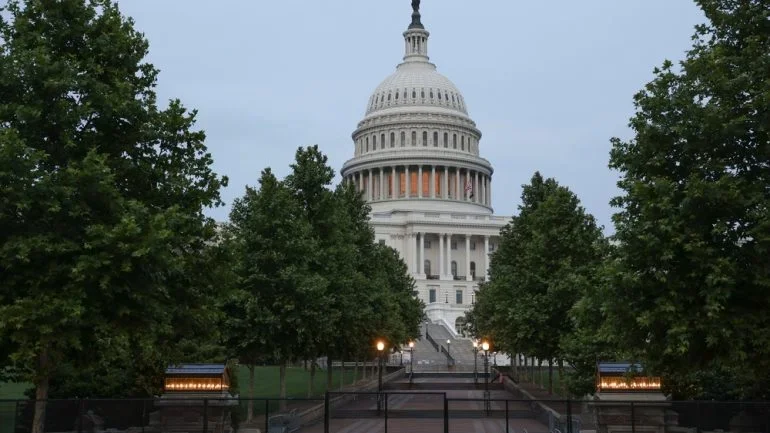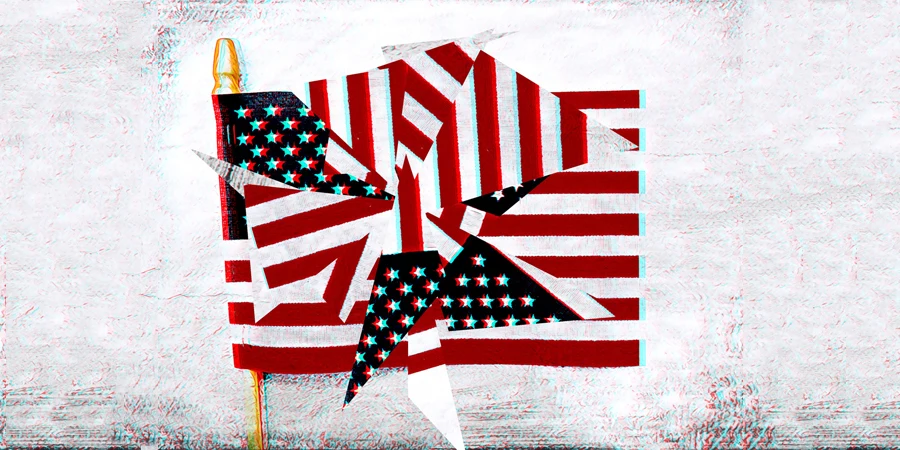The American Apparel and Footwear Association (AAFA) told a US Trade Representative (USTR) hearing on supply chain resilience that more free trade agreements are needed along with the removal of prison labour, while the National Council of Textile Organizations (NCTO) focused on the impact of de minimis.

AAFA’s senior vice president Nate Herman told the hearing 3.2m US jobs depend on the apparel industry and they also depend on access to foreign customers and global supply chains for their existence.
He added resilient supply chains rely on certainty, clarity and flexibility, but argued signals from Washington suggest a desire to diversify from China without negotiating new free trade agreements (FTAs).
“We have seen little effort by the administration or congress to renew expiring trade programmes or update existing trade agreements to make them more resilient,” Herman continued.
Meanwhile, NCTO president and CEO Kim Glas urged the US to be more deliberate in developing trade and investment policies that support the growth and resilience of the domestic textile supply chain and counter the so-called dominance of China’s goods through allegedly illegal trade practices.
She believes there are eight ways the US government can help stop the damage to the domestic side of the apparel and textile industry:
- Immediately close the de minimis tariff loophole.
- Dramatically ramp up and publicise customs enforcement and trade penalty activities.
- Preserve and protect the yarn forward rules of origin.
- Reject proposals to expand Generalized System of Preferences product coverage to textiles or apparel.
- Immediately pass the Miscellaneous Tariff bill.
- Increase Section 301 penalties on textiles and apparel imports.
- Fully implement the Make PPE in America Act and expand procurement opportunities.
- Enhance tax incentives to bolster domestic and regional production.
Glas suggests that, despite the domestic textile industry being an integral part of the military and public health industrial base, unchecked foreign predatory trade practices, a lack of effective customs enforcement, and misguided trade policy proposals are creating unstable and unsustainable market dynamics.
In her testimony, Glas said: “The confluence of these factors is threatening the future of domestic textile manufacturing as well as the textile and apparel coproduction chain between US and our Western Hemisphere free trade agreement (FTA) partners responsible for $40bn in annual two-way trade.”
She also explained 14 US textile factories have been permanently closed in recent months, and an estimated 100,000 jobs have been lost in the US and broader hemisphere.
AAFA’s Herman defended the need for foreign input to the apparel supply chain and stated: “Successful agreements and reliable programmes are fundamental building blocks for resilient supply chains, supply chains not depending on China. Further, goods agreements and reliable programmes reinforce American values on environment and labour.”
Herman was also keen to highlight the rigidity of the yarn forward rule limiting apparel investment and in turn apparel demand and textile investment: “With this vicious cycle and with no flexibility, the size of the pie never grows and supply chains don’t get more resilient.”
He continued: “Rules of origin in FTAs and trade programmes aim to preserve the benefits of duty-free trade for the beneficiaries. However, restrictive rules of origin, intended to ‘close the back door’ to China can impose substantial hurdles and administrative burdens.”
On the other hand, the NCTO claimed China and other Asian countries compete by “sourcing subsidised textile inputs from China, including those made from slave labour in Xinjiang where it alleges 20% of global cotton is produced and where synthetics like rayon have been tied to forced labour production.”
Glas maintained that closing the de minimis loophole is the most important action US Congress and the Biden Administration can take to counter illegal trade practices. She stated: “This loophole in US trade law allows four million packages a day to enter the US duty free and largely uninspected.”
AAFA admitted the concept of resilient supply chains is often code for trying to create more US manufacturing and noted it is a goal it “heartily” supports.
However, Herman was quick to add: “The single biggest threat to US manufacturing in our sector – bigger than all others combined – comes from the US government’s own addiction to forced labour, federal prison industries, otherwise known as Unicor or FPI, which pays US prisoners as little as $1.10 per hour.”
He explained that under US law, FPI receives significant preferences that essentially gives FPI the first right of refusal on US government contracts, including the ability to win contracts set aside fro small, minority-owned and woman-owned businesses.
He also alleged US taxpayer dollars have been used to promote FPI to foreign investors as the “best of American manufacturing without the cost” under the Select USA programme, which is “robbing” US apparel and footwear manufacturers of critical contracts to maintain and expand the US workforce.
Herman also claimed the US government is actively promoting an entity that violates at least four but as many as seven of the International Labor Organization’s 11 forced labour indicators.
He concluded: “These are the very same indicators US customs and border protection uses to enforce the US forced labour statute and UFLPA against US imports of products made with foreign forced or prison labour.”
In 2023, AAFA’s president Steve Lamar spoke to Just Style exclusively about the loophole of ‘Made in America’ which awards contracts to US prisons.
Source from Just Style
Disclaimer: The information set forth above is provided by just-style.com independently of Chovm.com. Chovm.com makes no representation and warranties as to the quality and reliability of the seller and products.




